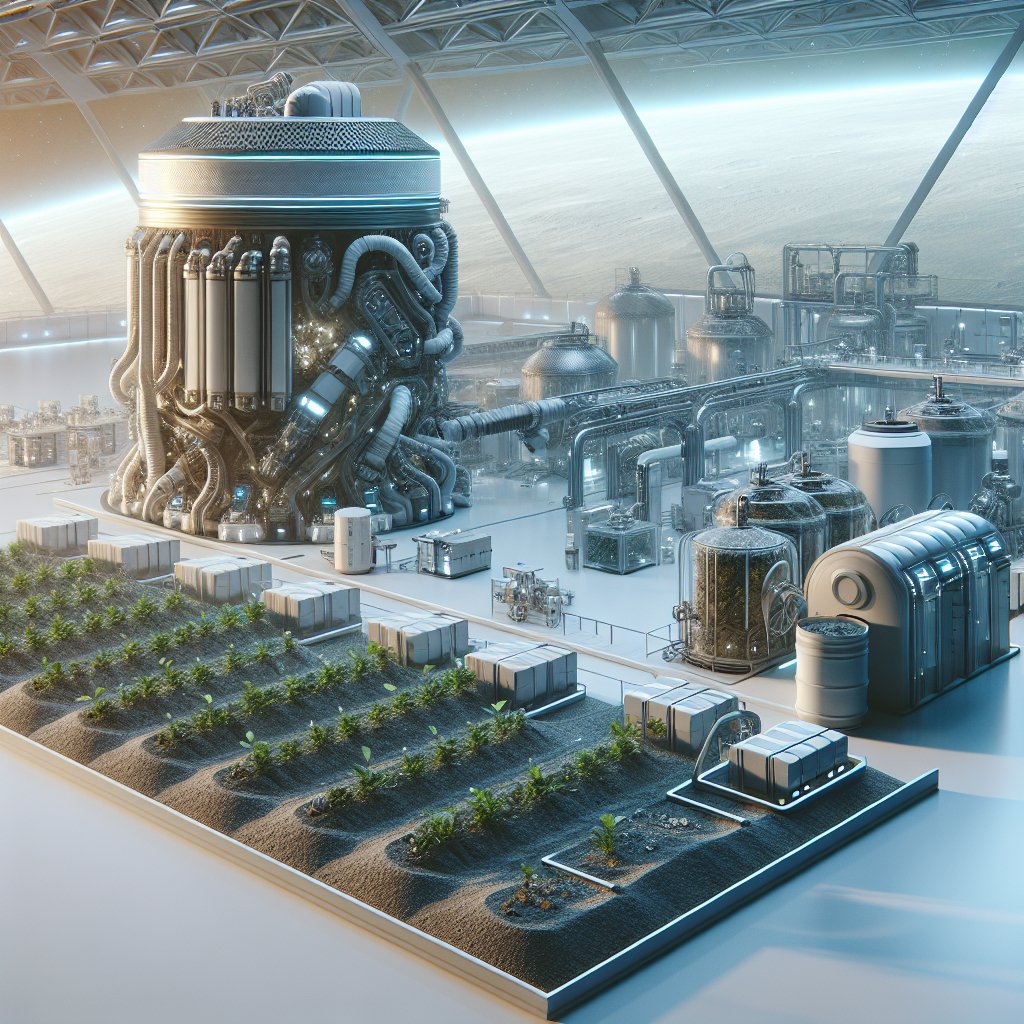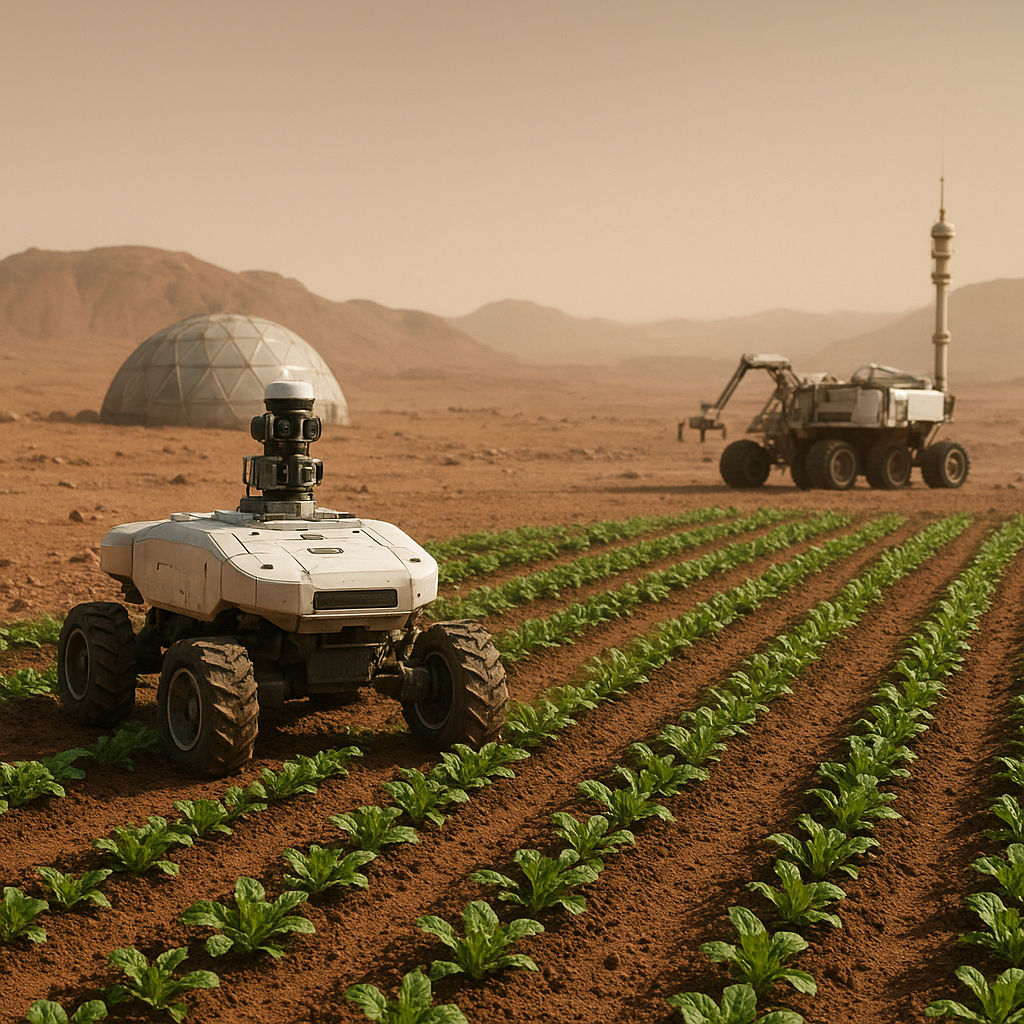The role of waste management in sustainable space agriculture is becoming increasingly critical as humanity looks to the stars for future habitation. As we venture into the cosmos, the need for efficient agricultural practices that can sustain life in extraterrestrial environments is paramount. This article explores the intersection of waste management and space agriculture, highlighting innovative strategies and technologies that can ensure sustainability in off-world farming.
Understanding Space Agriculture
Space agriculture refers to the cultivation of plants in environments beyond Earth, such as on the Moon or Mars. The challenges of growing food in space are immense, including limited resources, harsh environmental conditions, and the need for closed-loop systems that minimize waste. As we plan for long-duration missions and potential colonization, developing effective agricultural systems is essential for providing food, oxygen, and psychological well-being for astronauts.
One of the primary challenges in space agriculture is the management of waste. In a closed-loop system, every resource must be utilized efficiently, and waste must be minimized or repurposed. This is where waste management plays a crucial role. By implementing sustainable waste management practices, we can create a self-sustaining agricultural ecosystem that reduces reliance on Earth and enhances the viability of long-term space missions.
Waste Management Strategies in Space Agriculture
Effective waste management in space agriculture involves several strategies that can be adapted from Earth-based practices, as well as innovative solutions tailored for extraterrestrial environments. Here are some key approaches:
1. Composting and Organic Waste Recycling
Composting is a natural process that transforms organic waste into nutrient-rich soil. In space agriculture, composting can be utilized to recycle plant waste, food scraps, and other organic materials. This not only reduces waste but also enriches the soil, promoting healthy plant growth. The process can be accelerated using specialized composting systems that optimize conditions for microbial activity, even in low-gravity environments.
2. Hydroponics and Aeroponics
Hydroponics and aeroponics are soil-less farming techniques that can significantly reduce waste and resource consumption. In hydroponics, plants are grown in nutrient-rich water solutions, while aeroponics involves misting plant roots with nutrient solutions. Both methods require less water than traditional soil-based agriculture and allow for precise control over nutrient delivery. By minimizing the use of soil and maximizing resource efficiency, these systems can help manage waste effectively.
3. Bioreactors for Waste Conversion
Bioreactors can be employed to convert organic waste into valuable resources. For instance, anaerobic digestion can break down organic materials to produce biogas, which can be used as a renewable energy source. Additionally, the byproducts of this process can be used as fertilizers for plants, creating a closed-loop system that minimizes waste and maximizes resource utilization.
4. Waste-to-Energy Technologies
Waste-to-energy technologies can play a vital role in space agriculture by converting waste materials into energy. Incineration, gasification, and pyrolysis are methods that can be used to process waste and generate energy for agricultural systems. This not only reduces the volume of waste but also provides a sustainable energy source for lighting, heating, and powering agricultural equipment.
5. Closed-Loop Systems
Implementing closed-loop systems is essential for sustainable space agriculture. These systems aim to recycle all resources, including water, nutrients, and waste. By creating a self-sustaining ecosystem, we can minimize the need for resupply missions from Earth. For example, water can be reclaimed from plant transpiration and waste, while nutrients can be recycled through composting and bioreactor processes.
The Future of Waste Management in Space Agriculture
As we look to the future of space exploration and colonization, the role of waste management in sustainable agriculture will only become more critical. Research and development in this field are ongoing, with scientists and engineers exploring new technologies and methods to enhance waste management practices. Here are some potential future developments:
1. Advanced Waste Processing Technologies
Future advancements in waste processing technologies could lead to more efficient and effective methods for managing waste in space. Innovations in microbial fuel cells, for example, could allow for the conversion of organic waste into electricity while simultaneously producing valuable byproducts for agriculture.
2. Genetic Engineering for Waste Reduction
Genetic engineering may play a role in developing plant varieties that produce less waste or require fewer resources. By modifying plants to be more efficient in nutrient uptake and waste production, we can further enhance the sustainability of space agriculture.
3. Integration of Artificial Intelligence
Artificial intelligence (AI) can be utilized to optimize waste management processes in space agriculture. AI algorithms can analyze data from agricultural systems to identify waste patterns, predict resource needs, and suggest improvements. This data-driven approach can lead to more efficient waste management and resource utilization.
4. Collaboration and Knowledge Sharing
As space exploration becomes a global endeavor, collaboration among nations and organizations will be essential. Sharing knowledge and best practices in waste management and space agriculture can accelerate advancements and lead to more sustainable solutions. International partnerships can foster innovation and ensure that we are prepared for the challenges of space farming.
Conclusion
The role of waste management in sustainable space agriculture is a vital component of our efforts to establish a human presence beyond Earth. By implementing innovative waste management strategies, we can create self-sustaining agricultural systems that minimize waste and maximize resource efficiency. As we continue to explore the cosmos, the lessons learned from waste management in space agriculture will not only benefit our missions but also contribute to sustainable practices on Earth. The future of space agriculture is bright, and with effective waste management, we can ensure that humanity thrives in the stars.




